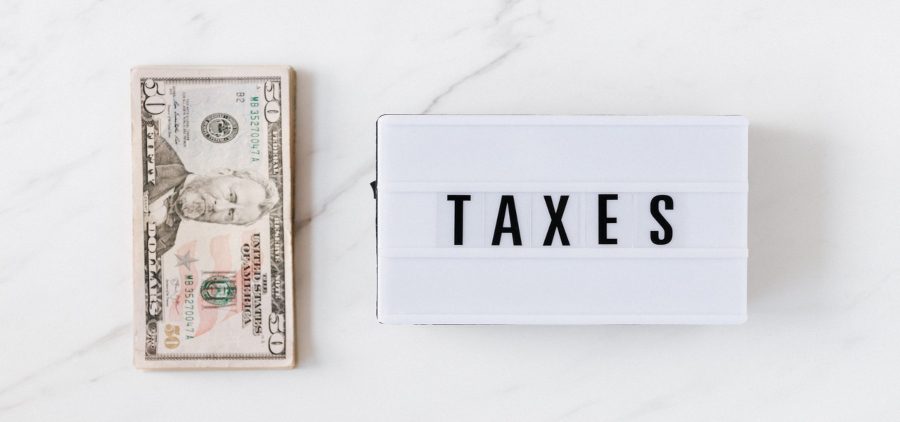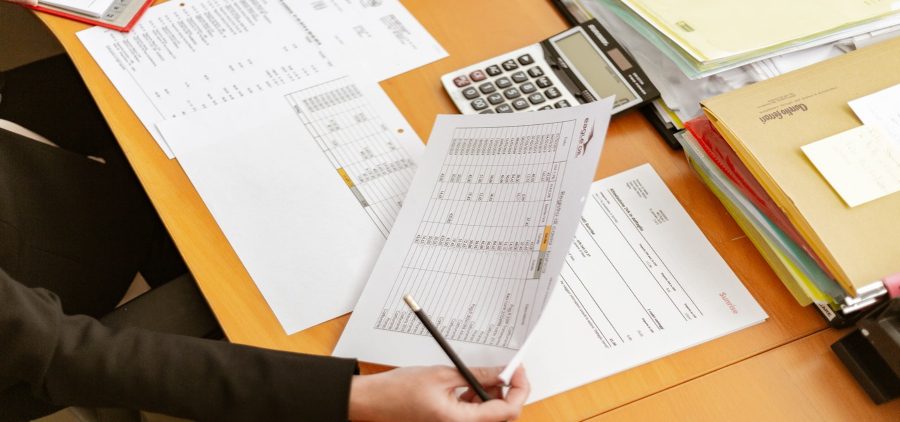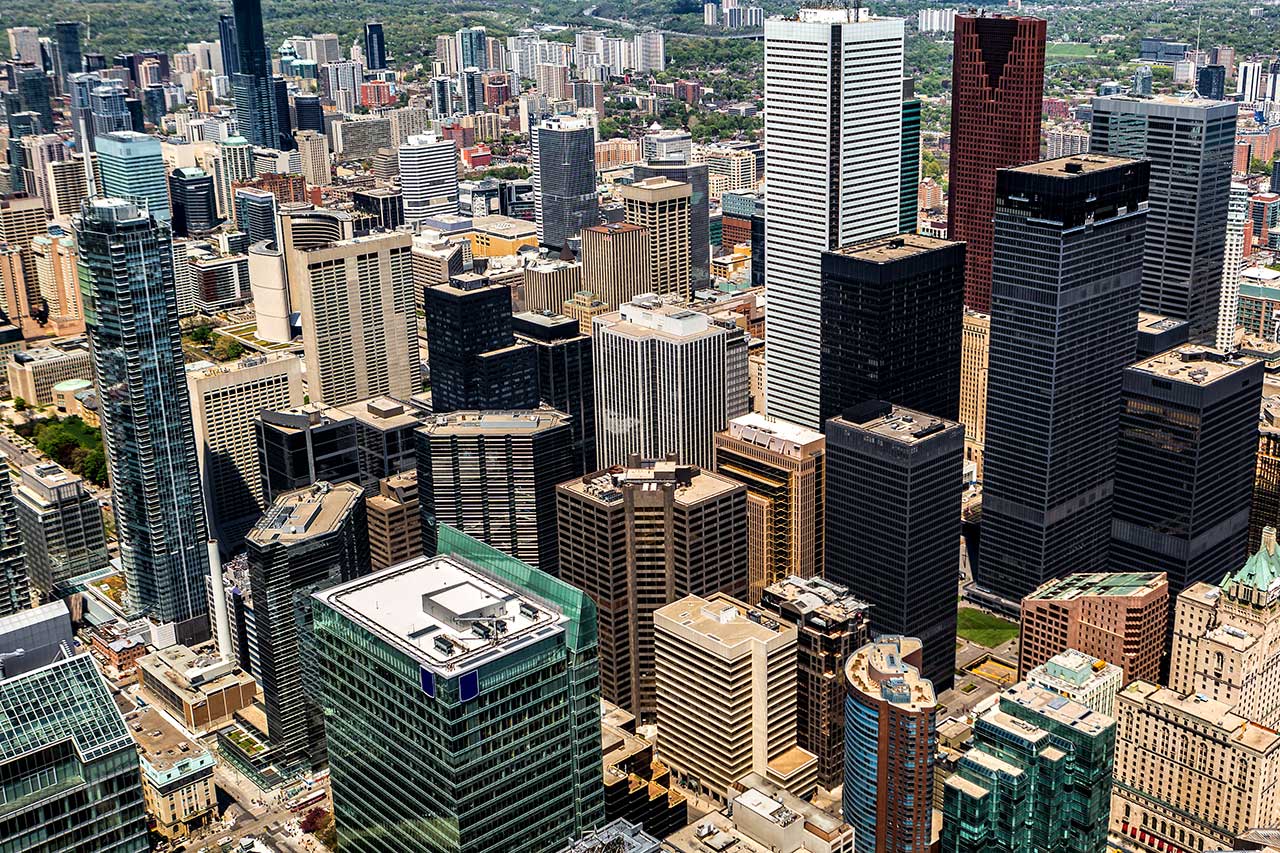If you’re reading this, you probably own one rental property or several rental properties in Canada or rent out a few rooms in your principal residence. At the end of the month, you usually expect some rental income, and come tax time; the Canada Revenue Agency expects you to declare all of it on your tax return. However, you can also deduct expenses from your income for tax purposes.
Do you know what rental property expenses you are able to deduct in Canada and what to do when tax season comes around? Do you know the tax implications of every capital expense, business and personal expenses, capital expenditures, house insurance, mortgage insurance, mortgage interest, certain motor vehicle expenses, payments to a property manager, and other deductible expenses on rental properties?
You might be wondering, “Do I have to report all that income I earn from my rental properties on my tax return, or can I make deductions from it?”
To answer you briefly, yes, your rental income is taxable, and, thankfully, you are able to deduct many expenses from the income on your rental properties for tax purposes.
Later on in the article, we’ll be taking a closer look at income and expenses and each of these rental property tax deductions in Canada. But for now, it would be best if you first understand the difference between current expenses and capital costs, the two major types of expenses on rental property recognized by the Canadian Revenue Agency (CRA).

Basic Types of Expenses for Deductions on Rental Property in Canada
The CRA specifies not only the expenses that can be deducted from your rental income but also when, specifically, the tax year, in which they can be deducted. As you will realize shortly, some expenses are only acceptable as a deduction in the year you incur them, while others are deductible in future years.
Capital Expenses vs. Current Expense
The first category is a current expense. The other is referred to as capital expenditures. Generally speaking, a current expense reoccurs after a short period. An example of capital costs provided by the Canada Revenue Agency is the cost you incur to paint the exterior of your wooden property. Current expenses include repairs and maintenance.
Capital expenditures, on the other hand, offer a lasting advantage or benefit to the market value of the original condition or value of the property. The Canada Revenue Agency (CRA) defines capital expenses as “renovations and expenses that extend the useful life of your property or improve it beyond its original condition.” Placing vinyl siding on the exterior walls of your wooden property, for instance, is a capital expense because it improves upon the original condition or value of the property.
Here are the questions the CRA uses to determine whether an expense is a capital expense or a current expense:
- Does the expense offer a lasting advantage toward the market value or selling price of the investment property?
- Does the cost improve the market value of the property or maintain the property?
- Is the expense for a separate asset or just a part of the property?
- Is the cost incurred in repairing the rental property you acquired for the purpose of placing it in a suitable condition for use?
- Is the cost incurred in repairing an asset made for the purpose of increasing the value or selling price and then selling it?
- What is the market value of the expense?
Why the Expense Type Matters
Are those all of the possible questions to determine expenses? Definitely not. You can learn a lot more about current and capital expenses from the CRA platform, including how to judge an expense in light of the questions we’ve mentioned.
Understanding whether a cost is a current or capital expense is important for calculating deductible expenses on your business income. Current expenses will only apply for the current year and are relatively straightforward. A capital expense, on the other hand, will need to be divided in very specific ways and applied over a few years’ taxes.
As an owner of one rental property or multiple properties, it is very important you learn how to properly apply capital costs and other deductible expenses so as not to make any mistakes on your tax return.
Next, let’s learn more about the rules of tax on rental income and allowable expenses together with other information you need to know as an investment property owner.
A Guide to Tax Deductions on Rental Property in Canada
Below is a list of deductible expenses on rental property in Canada you can go ahead and claim right now. This should be done on Form T776 when filing your personal tax return.
Advertising
If you advertise your rental property in magazines, newspapers, websites, and other similar places, go ahead and claim a tax deduction for all the payments you made for it. Claim all the advertising expenses because all of them are directly related to your property.
Insurance
Is your rental property(s) insured? Did you pay any home insurance premiums towards coverage for your rental properties? If your answer is yes to both questions, you are able to deduct what you’ve incurred for building or house insurance during the year. But you have to limit your deduction to cover expenses incurred during the current year.
In the event your premiums offer coverage for more than one year, you are only allowed to lessen the expenses in the current year that they offer coverage for.
Make a full claim if you rent out your entire property. If the rental property is part of your principal residence, just claim that portion of the amount.
Interest
Under interest, there’s a variety of costs you can claim.
At the top of the list is the interest incurred from the mortgage you borrowed to finance the purchase of your rental property. Don’t forget to mention every cost charged when obtaining a mortgage for the property, like the legal fees, mortgage application, appraisal, and so on. Leave out the mortgage principal for the property, as it’s not deductible.
Funds you borrowed to finance improvements to your property can also be deducted. However, it must be a soft cost, which the CRA defines as any funds you borrow for the sake of financing construction, upgrades, and renovations to your rental property with the aim of increasing its value or making it more suitable to rent out.
If you borrow money to buy or improve a rental property, you can claim the interest on your taxes. The total interest you can claim depends on how you use the property. You can claim all the mortgage interest if it is rented out for the whole year.
Professional Fees (Legal And Accounting Included)
The fee incurred in hiring different types of professionals to work for you is deductible as well. Examples include property management, legal fees (for preparing leases, collecting overdue rents, etc.), accounting fees (for bookkeeping, auditing, preparing financial statements, etc.), and consultancy fees. Generally, you can deduct the property management and other fees incurred for the sake of running your rental properties.
However, legal expenses incurred to purchase a rental property can’t be deducted from the gross rental income; rather, split them between building and land, then add them both to the specific costs they belong to.
Repairs, Maintenance, and Improvements
Expenses of normal repairs and maintenance costs, like the cost of fixing a broken door or window, painting, and the like, count as current expenses and can, therefore, be deducted in the year you incurred them. Repairs and maintenance costs can be significant current expenses for your income tax return.
Improvements, on the other hand, especially those done to your business assets, should be capitalized if:
- They increase the value of the property
- To a noticeable degree, extend the duration you can use the asset
- Adapt the asset to a totally different use
Improvements mostly cover real estate and are largely seen as adding value to your rental properties. It could be the new electrical wiring, lighting, or plumbing you put up or the project you undertook to rebuild your business equipment.
Thus, improvements to rental properties can’t be deducted in the year they were incurred.
Management And Administration Fees
This category covers the amounts you paid a company or an individual to manage your rental property in Toronto. Other payments that also fall into this category include what you paid or is payable to real estate agents for finding new tenants or collecting rents.
If you hire a property management company to manage your properties or an accountant to work on organizing your rental property books, these property management fees are all deductible expenses.
Motor Vehicle Expenses
Motor vehicle expenses are deducted based on how many properties you own. For example, if you own one rental property, you can go ahead and deduct specific motor vehicle expenses, but only if certain conditions are met.
However, you can’t deduct motor vehicle expenses incurred to collect rent unless you own more than one rental property. More about the motor vehicle expenses category can be found on the CRA’s website.
Office Expenses
Just as the name suggests, office expenses include the cost of buying items such as pens, paper, pencils, stamps, stationery, and the like.
These expenses can only be applied if the purchases in question were made for business use only. Items bought for personal use must be considered personal expenses, and those cannot be deducted.
Property Taxes
Your province will determine how much you will pay for tax, and then your municipality will collect the amount. Tax rules allow you to go ahead and subtract the property taxes your municipality has charged you in the current financial year. Remember to only claim the portion related directly to your rental property.
For instance, if you have a principal residence plus a basement apartment that you rent out, you can claim a percentage of the amount that is equivalent to the square footage the rented unit occupies.
Additionally, you can only claim property taxes for the period a rental unit was actually being rented out or was available to be rented out. If you did not convert your basement into a rental unit until six months into the year, you could only deduct property taxes for the remaining six months.
People who itemize their tax returns can deduct the property taxes they pay on their home and any other real estate they own. This includes the taxes you pay starting from the date you purchase the property. If you’re single, a head of household or married and filing jointly, you can now deduct a total of $10,000 in state and local property taxes. If you are married and filing separately, you can deduct a total of $5,000.

Travel
As a landlord, you are allowed to deduct specific travel costs (both local and long-distance) from your rental income that relate to your rental property. Commuting expenses, say, travelling from work to home or vice versa, aren’t included.
In the event you have your own motor vehicle, you can make the deduction using two methods. The first one is the mileage rate. The other is by taking off the value of the expenses incurred, such as gasoline, repair, and maintenance. Other motor vehicle expenses, such as parking fees, tolls, interest on your car loan, applicable registration fees, license costs, and related taxes, can also be deducted from your business income for tax purposes.
If you don’t own a motor vehicle, you may be able to deduct all the public transportation expenses you’ve incurred that are related to your business or rental property.
Keep in mind that these travel expenses cannot be used to cover the cost of collecting rent if you are only managing a single unit. If you have multiple units in different areas, travel expenses may apply.
Prepaid Expenses
These are expenses you pay way ahead of their time. You can, therefore, go ahead and claim any prepaid expenses you make in the year or the years you get the attached advantage.
Utilities
Utilities, no doubt, take a huge portion of the expense you incur as a landlord. Thankfully, you can make a claim on your tax return for the utilities that are related to your property. That means you can only make a full claim if you rent out the entire property and a portion if only a part of your property is rented out. Utilities could be things like water, heat, cable, hydro, and the like.
Other Expenses
Other rental expenses such as landscaping costs, condominium fees, vacant land, mortgage interest, and lease cancellation payments are deductible, but each is subject to unique conditions.
Can you deduct the rent you pay on your taxes?
No, there are no circumstances in which you can do this. Rent is the money you pay to use someone else’s property. Deducting rent on your taxes is not allowed by the IRS.
How Is Rental Income Taxed in Ontario
Ontario is a great place to live and work, but many people don’t know that it also has some of the highest taxes in all of Canada. If you’re a corporation or business owner with rental property here- be aware: that your total tax rate will range from 11% (for those who qualify) up to 38%.
FAQs About Rental Property Deductions in Canada
How Is Rental Income Taxed in Canada?
The tax rate for your rental income is going to depend on whether you are filing as an individual, in a partnership, or in a corporation.
If you are the sole proprietor of your rental units, the tax rate is going to be the same as your personal tax rate. You will use this form to file. Partnerships will split the income between the partners, and then each partner will pay on that income at their personal tax rate. Finally, businesses will pay the appropriate tax rate for their business and location; the national tax rate for rental income is 38%.
For a complete guide to how your personalized tax situation might look like, check out this article all about rental income taxation in Canada.
Are You Able to Deduct the Cost of Property Taxes if You Rent Your Unit Out?
Yes, you can deduct the cost of property taxes in specific situations when renting out a property. The Canada Revenue Agency says you can deduct these taxes for the period it was available to rent. This means you can deduct the property taxes from when the rental unit is being marketed, but you can’t deduct them from when you were still doing renovations to improve the original condition of the property.
What Can I Write Off on My Rental Property in Canada?
Today’s guide has covered many of the expenses you can write-off on your taxes in Canada in detail; scroll back up to get a closer look at the details of those expenses and deductions.
Deductible expenses on one rental property or multiple rental properties may include:
- Advertising cost
- Property management fees
- Insurance
- Office expenses
- Professional fees
- Administrative fees
- Cost of repairs
- Maintenance fees
- Salaries and wages
- Cost of benefits
- Property taxes
- Cost of travel for work
- Utilities
- Prepaid expenses
- Landscaping costs
- Condominium fees
The complete list from the Canadian government of what rental expenses can be deducted can be found on their website with additional explanations here.
Can You Deduct Rental Expenses If You Have No Rental Income?
In some cases, it is possible to deduct rental expenses if you have no rental income or experience a rental loss. A rental loss occurs when your rental expenses are higher than your gross rental income. The rental loss then is claimed against your other sources of income, but this situation may need to be verified when you file your income and expenses.
However, keep in mind that those deductions can only be made while the property is vacant but available to be rented. The deductions can cover the cost of maintaining the property while you wait to rent or sell it, but those deductions will not apply if the unit is not on the market.
Are Condo Fees Tax Deductible for Rental Property in Canada?
Yes, condominium fees are tax deductible in some rental situations. They can be taken as deductions when they impact what you would otherwise make in income on your rental property. If your tenant pays the condominium fees, you cannot deduct them during that time period.
Conclusion
As you take note of these deductible expenses for rental property, it would also be great to have a look at your income and expenses the Agency says you can’t deduct from your income from your rental property.
More specifically, that list includes:
- Penalties
- Land Transfer Tax
- The value of your own labour
- … and more!
Feeling stuck or in need of help? A qualified and reputable investment consultant or a Toronto property management company would be your first option as their knowledge and experience enable them to thrive in this area.



